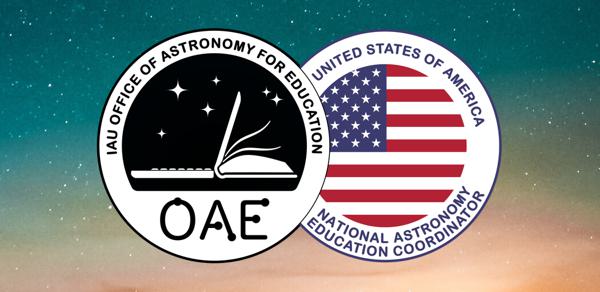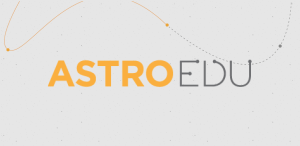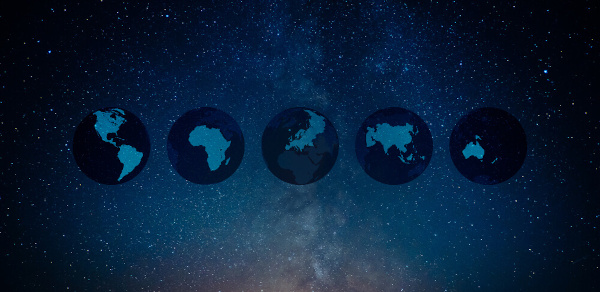Abstract Submission Open for 4th Shaw–IAU Workshop on Astronomy for Education
Published: 9th July 2022 20:27 (UTC)
The IAU Office of Astronomy for Education (OAE) is pleased to announce that registration, abstract submission and speaker suggestions are open for the 4th Shaw–IAU Workshop on Astronomy for Education. The event will take place on 15–17 November 2022 and will be fully virtual.
This year’s Shaw–IAU Workshop on Astronomy for Education focuses on the theme “Leveraging the Potential of Astronomy in Formal Education”. It will look at the role of astronomy in the core areas of formal primary and secondary education, asking questions like: how do we teach astronomy as its own subject? What is the role of astronomy in teaching physics or chemistry — or in communicating such a central future topic as climate change?
The workshop will also address the question of how to approach those who set the framework for teaching: how can you get your administration, or at a much higher level, your education ministry, to listen to you?
Last but not least the workshop will look at how to bridge the divide between the fundamentals that are commonly taught in school and results from cutting-edge research, which tend to be fascinating to students and the general public alike.
The programme will include sessions on the topics set out below. In sessions marked with *, the OAE is seeking to hear specifically from teachers.
- Teaching astronomy in primary schools: How, why, and in what context*
- Teaching astronomy as its own subject in secondary schools* Teaching astronomy as part of physics, chemistry, geography (and others) in secondary schools — astronomy as a “gateway science”*
- Teaching astronomy as part of non-STEM subjects in secondary schools: art, music, philosophy and beyond*
- Students in a changing climate: how can astronomy help?*
- Astronomy education research on the role of astronomy in schools
- Student interest in astronomy and other subjects: research and practical experience
- Astronomy in schools: how do you get your administration and your ministry to listen?
- How to develop an astronomy curriculum
- Gravitational waves, black hole shadows and exoplanets: Can we make a place for cutting-edge results in schools?
Anyone active in astronomy education is encouraged to participate, including teachers, astronomy education researchers and those interested in building up the astronomy education content in the curriculum in their country or territory.
The call for abstracts and speaker suggestions for this workshop is now open along with registration. The deadline for talk and poster abstract submissions and speaker suggestions is 26 August 2022. Registration will remain open until the start of the workshop.
The event is being organised by the IAU OAE, with generous funding from the Shaw Prize Foundation.
More information
The IAU is the international astronomical organisation that brings together more than 12 000 active professional astronomers from more than 100 countries worldwide. Its mission is to promote and safeguard astronomy in all its aspects, including research, communication, education and development, through international cooperation. The IAU also serves as the internationally recognised authority for assigning designations to celestial bodies and the surface features on them. Founded in 1919, the IAU is the world's largest professional body for astronomers.
The IAU Office of Astronomy for Education is hosted at Haus der Astronomie (HdA), managed by the Max Planck Institute for Astronomy. The OAE’s mission is to support and coordinate astronomy education by astronomy researchers and educators, aimed at primary or secondary schools worldwide. HdA’s hosting the OAE was made possible through the support of the German foundations Klaus Tschira Stiftung and Carl-Zeiss-Stiftung.
The OAE is supported by a growing network of OAE Centers and OAE Nodes, collaborating to lead global projects developed within the network. The OAE Centers and Nodes are: the OAE Center China–Nanjing, hosted by the Beijing Planetarium (BJP); the OAE Center Cyprus, hosted by Cyprus Space Exploration Organization (CSEO); the OAE Center Egypt, hosted by the National Research Institute of Astronomy and Geophysics (NRIAG); the OAE Center India, hosted by the Inter-University Centre for Astronomy and Astrophysics (IUCAA); the OAE Center Italy, hosted by the National Institute for Astrophysics (INAF); the OAE Node Republic of Korea, hosted by the Korean Astronomical Society (KAS); OAE Node France at CY Cergy Paris University hosted by CY Cergy Paris University; and the OAE Node Nepal, hosted by the Nepal Astronomical Society (NASO).
Share on:
Contacts
Gwen SandersonOAE Main Office
Organisational Assistant
sandersonatastro4edu.org
Lars Lindberg Christensen
IAU Director of Communications
lars.christensenatnoirlab.edu








